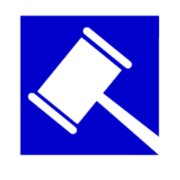Best Defamation Lawyers in Dominican Republic
Share your needs with us, get contacted by law firms.
Free. Takes 2 min.
Or refine your search by selecting a city:
List of the best lawyers in Dominican Republic
About Defamation Law in Dominican Republic:
Defamation in the Dominican Republic is governed by the Civil Code, which outlines regulations regarding slander and libel. Defamation occurs when someone makes a false statement about another person that harms their reputation. It is important to understand the legal implications of defamation in the Dominican Republic to protect your rights.
Why You May Need a Lawyer:
You may need a lawyer if you have been accused of defamation or if you believe you have been defamed. A lawyer can help you navigate the legal process, advise you on your rights, and represent you in court if necessary. It is important to seek legal advice to protect yourself and ensure that your rights are upheld.
Local Laws Overview:
In the Dominican Republic, defamation is considered a civil offense rather than a criminal offense. To prove defamation, the plaintiff must show that the defendant made a false statement that harmed their reputation. The defendant can defend themselves by proving the truth of the statement or showing that it was made in good faith. It is important to be aware of these laws and regulations if you are involved in a defamation case.
Frequently Asked Questions:
Q: What is the difference between slander and libel?
A: Slander is spoken defamation, while libel is written defamation.
Q: What are the possible consequences of defamation in the Dominican Republic?
A: The consequences of defamation can include financial compensation for damages, a public apology, and in some cases, criminal charges.
Q: How long do I have to file a defamation lawsuit in the Dominican Republic?
A: The statute of limitations for defamation cases in the Dominican Republic is typically one year from the date the defamatory statement was made.
Q: Can I be sued for defamation if I share someone else's false statement?
A: Yes, you can be held liable for defamation if you share false information that harms someone else's reputation.
Q: Can defamation cases be settled out of court?
A: Yes, defamation cases can be settled out of court through mediation or negotiation between the parties involved.
Q: What evidence is needed to prove defamation in court?
A: To prove defamation, you must provide evidence that the statement was false, published to a third party, and caused harm to your reputation.
Q: Can truth be a defense against defamation charges?
A: Yes, truth is a valid defense against defamation charges in the Dominican Republic. If you can prove that the statement is true, you may not be held liable.
Q: Is it possible to obtain a retraction or correction of a defamatory statement?
A: Yes, you can request a retraction or correction of a defamatory statement to mitigate the harm caused to your reputation.
Q: What should I do if I have been defamed online?
A: If you have been defamed online, you should gather evidence of the defamatory statements and consult with a lawyer to determine the best course of action.
Q: How can a lawyer help me with a defamation case?
A: A lawyer can provide legal advice, represent you in court, help gather evidence, and negotiate settlements in a defamation case.
Additional Resources:
For more information on defamation laws in the Dominican Republic, you can contact the Ministry of Justice or the Dominican Bar Association. These organizations can provide guidance and support for individuals seeking legal advice on defamation issues.
Next Steps:
If you believe you have been defamed or need legal assistance with a defamation case, it is important to consult with a qualified lawyer who specializes in defamation law in the Dominican Republic. A lawyer can assess your case, provide legal advice, and represent you in court if necessary. Don't hesitate to seek legal help to protect your rights and reputation.
Lawzana helps you find the best lawyers and law firms in Dominican Republic through a curated and pre-screened list of qualified legal professionals. Our platform offers rankings and detailed profiles of attorneys and law firms, allowing you to compare based on practice areas, including Defamation, experience, and client feedback.
Each profile includes a description of the firm's areas of practice, client reviews, team members and partners, year of establishment, spoken languages, office locations, contact information, social media presence, and any published articles or resources. Most firms on our platform speak English and are experienced in both local and international legal matters.
Get a quote from top-rated law firms in Dominican Republic — quickly, securely, and without unnecessary hassle.
Disclaimer:
The information provided on this page is for general informational purposes only and does not constitute legal advice. While we strive to ensure the accuracy and relevance of the content, legal information may change over time, and interpretations of the law can vary. You should always consult with a qualified legal professional for advice specific to your situation.
We disclaim all liability for actions taken or not taken based on the content of this page. If you believe any information is incorrect or outdated, please contact us, and we will review and update it where appropriate.
Browse defamation law firms by city in Dominican Republic
Refine your search by selecting a city.











